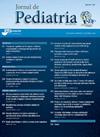临床背景下的青少年医疗决策能力:理论研究与模型。
IF 2.8
4区 医学
Q1 PEDIATRICS
引用次数: 0
摘要
目的为影响青少年医疗决策能力因素的生命伦理学基础提供理论研究和模型:资料来源:研究人员有针对性地选择了不同来源的样本,包括公认数据库中的索引文章和政府官方文件。研究包括两个阶段:选择文件和反思性主题分析,然后编写报告。分析采用了符合人权的现象学立场和反思观点。为减少偏差并确保结果的稳健性,采用了数据三角测量等措施。为确保数据的完整性,还采取了伦理措施,包括考虑所选研究的匿名性和利益冲突:可以列出影响青少年患者健康决策能力的内在和外在因素。通过信息图表,我们建立了一个理论模型来讨论这些评估因素:看来很明显,对青少年医疗决策能力的评估必须从伦理角度进行定位,既要考虑尊重有能力主体的自我决定的道德责任,又要考虑保护在特定时间无法做出特定健康决定的青少年。本文章由计算机程序翻译,如有差异,请以英文原文为准。
Adolescents’ healthcare decisional capacity in the clinical context: a theoretical study and model
Objective
To provide a theoretical study and model for the bioethical foundations of the factors that influence adolescents' healthcare decisional capacity.
Sources
Materials from diverse sources, including indexed articles in recognized databases and official government documents, were examined for a purposefully selected sample. The research consisted of two stages: selection of documents and reflective thematic analysis, followed by the preparation of a report. The analysis adopted a phenomenological stance and a reflective view compatible with human rights. To reduce bias and ensure the robustness of the results, measures such as data triangulation were employed. Ethical measures were taken to ensure data integrity, including considerations of anonymity and conflicts of interest in the selected studies.
Summary of the findings
It was possible to list intrinsic and extrinsic factors of the adolescent patient that influence their decisional capacity regarding health. A theoretical model was developed to discuss these factors for evaluation by means of an infographic.
Conclusions
It seems clear that the evaluation of healthcare decisional capacity of adolescents must position itself ethically regarding the tension between the moral duty to respect the self-determination of the able subject and the need to protect adolescents decidedly unable to make a specific health decision at a given time.
求助全文
通过发布文献求助,成功后即可免费获取论文全文。
去求助
来源期刊

Jornal de pediatria
医学-小儿科
CiteScore
5.60
自引率
3.00%
发文量
93
审稿时长
43 days
期刊介绍:
Jornal de Pediatria is a bimonthly publication of the Brazilian Society of Pediatrics (Sociedade Brasileira de Pediatria, SBP). It has been published without interruption since 1934. Jornal de Pediatria publishes original articles and review articles covering various areas in the field of pediatrics. By publishing relevant scientific contributions, Jornal de Pediatria aims at improving the standards of pediatrics and of the healthcare provided for children and adolescents in general, as well to foster debate about health.
 求助内容:
求助内容: 应助结果提醒方式:
应助结果提醒方式:


